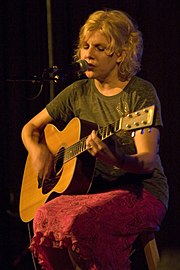
Emma Goldman was a Russian-born anarchist, political activist, and writer. She played a pivotal role in the development of anarchist political philosophy in North America and Europe in the first half of the 20th century.

Sissonville is a census-designated place (CDP) in Kanawha County, West Virginia, United States, along the Pocatalico River. The population was 4,028 at the 2010 census. Sissonville is located within 14 miles of Charleston, the state capital.
Carla Howell is an American politician, small government advocate and activist. She was the Libertarian Party of Massachusetts candidate for Massachusetts State Auditor in 1998, U.S. Senate in 2000, and Governor in 2002. She then served in multiple leadership positions in the U.S. Libertarian Party. She has also organized tax-cut initiative ballot measures in Massachusetts and worked for the Libertarian National Committee.

Women's gridiron football, more commonly known as women's tackle football, women's American football, women's Canadian football, or simply women's football, is a form of gridiron football played by women. Most leagues play by similar rules to the men's game. Women primarily play on a semi-professional or amateur level in the United States. Very few high schools or colleges offer the sport solely for women and girls. However, on occasion, it is permissible for a female player to join the otherwise male team.

The Anarchist Cookbook, first published in 1971, is a book containing instructions for the manufacture of explosives, rudimentary telecommunications phreaking devices, and related weapons, as well as instructions for the home manufacture of illicit drugs, including LSD. It was written by William Powell at the apex of the counterculture era to protest against United States's involvement in the Vietnam War. Powell converted to Anglicanism in 1976 and later attempted to have the book removed from circulation. However, the copyright belonged to the publisher, who continued circulation until the company was acquired in 1991. Its legality has been questioned in several jurisdictions.
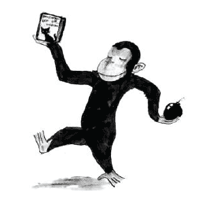
The Curious George Brigade (CGB) is an anarchist collective associated with post-left anarchy and affiliated with CrimethInc., who published their 2003 book Anarchy in the Age of Dinosaurs.

AMA Computer University, also known as AMA University or simply AMA, is a private, nonsectarian, for-profit higher education institution in Quezon City, Philippines. AMA is currently the largest information technology and computer education system in the Philippines. AMA is also known for being the pioneer in offering bachelor's degree programs in computer science, computer engineering, cybersecurity, and blockchain technology in the Philippines.
Morse v. Frederick, 551 U.S. 393 (2007), is a United States Supreme Court case where the Court held, 5–4, that the First Amendment does not prevent educators from suppressing student speech that is reasonably viewed as promoting illegal drug use at or across the street from a school-supervised event. In 2002, Juneau-Douglas High School principal Deborah Morse suspended student Joseph Frederick after he displayed a banner reading "BONG HiTS 4 JESUS" [sic] across the street from the school during the 2002 Winter Olympics torch relay. Frederick sued, claiming his constitutional rights to free speech were violated. His suit was dismissed by the federal district court, but on appeal, the Ninth Circuit reversed the ruling, concluding that Frederick's speech rights were violated. The case then went on to the Supreme Court.
The Gazette-Mail Kanawha County Majorette and Band Festival is an annual festival dedicated to the public high school marching bands and majorette corps in Kanawha County, West Virginia. It is the longest running music festival in West Virginia and is held at the University of Charleston Stadium at Laidley Field in Charleston at the end of September each year, typically the last Tuesday. The first event was held in 1947 and was attended by nearly 25,000 people. The event was originally sponsored by the Charleston Daily Mail newspaper, but is now sponsored by the Charleston Gazette-Mail after the Daily Mail merged with the Charleston Gazette in 2015. The event was not held in 2020 due to the COVID-19 pandemic. The 2022 festival was the event's 76th anniversary and the Festival Grand Champion was George Washington High School.
Sissonville High School is a public high school in Sissonville, West Virginia, USA. It is one of the eight public high schools in the Kanawha County School district. It serves students in grades 9 through 12.

Eastern High School, established in 1844 along with its sister school Western High School, was a historic all-female, public high school located in Baltimore City, Maryland, 21218, U.S.A. Its final building, at 1101 East 33rd Street, is to the west of The Baltimore City College, also at 33rd Street, and across the street from the former site of Memorial Stadium. E.H.S. was operated by the Baltimore City Public Schools system at successive locations until it was closed in 1986. The final building was renovated in the 1990s and is currently owned and used for offices by the Johns Hopkins Medical Institutions. It was listed on the National Register of Historic Places in 2000.
"The Tyranny of Structurelessness" is an influential essay by American feminist Jo Freeman that concerns power relations within radical feminist collectives. The essay, inspired by Freeman's experiences in a 1960s women's liberation group, reflected on the feminist movement's experiments in resisting leadership hierarchy and structured division of labor. This lack of structure, Freeman writes, disguised an informal, unacknowledged, and unaccountable leadership, and in this way ensured its malefaction by denying its existence. As a solution, Freeman suggests formalizing the existing hierarchies in the group and subjecting them to democratic control.
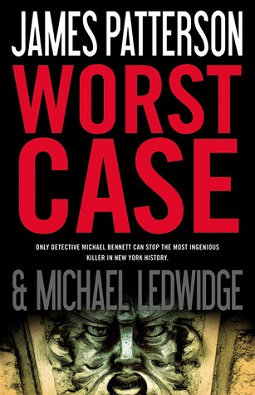
Worst Case is the third book in the Michael Bennett series by James Patterson and Michael Ledwidge. It was published on February 1, 2010, by Little, Brown and Company.
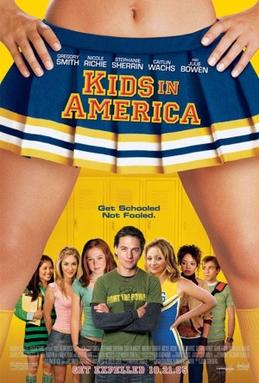
Kids in America is a 2005 American comedy film written and directed by Josh Stolberg. The film is inspired by real events.

Sunland-Tujunga is a Los Angeles city neighborhood within the Crescenta Valley and Verdugo Mountains. Sunland and Tujunga began as separate settlements and today are linked through a single police station, branch library, neighborhood council, chamber of commerce, city council district, and high school. The merging of these communities under a hyphenated name goes back as far as 1928. Sunland-Tujunga contains the highest point of the city, Mount Lukens.
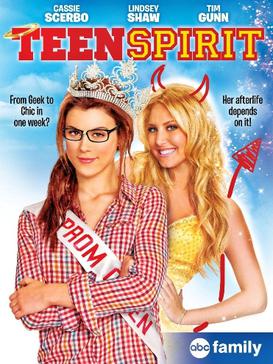
Teen Spirit is an American television film that premiered on ABC Family on August 7, 2011. It is directed by Gil Junger and stars Cassie Scerbo and Lindsey Shaw as the main protagonists.
Straight pride is a slogan that arose in the 1980s and early 1990s that has primarily been used by social conservatives as a political stance and strategy. The term is described as a response to gay pride adopted by various groups in the early 1970s, or to the accommodations provided to gay pride initiative.
Julie Catherine Laible was a professor at University of Alabama killed by a large rock thrown at her car from an overpass while she was driving along Interstate 75 in Manatee County, Florida, on March 28, 1999.

Katie Joplin is an American sitcom created by Tom Seeley and Norm Gunzenhauser that aired for one season on The WB Television Network from August to September 1999. Park Overall stars as the title character, a single mother who moves from Knoxville to Philadelphia and tries to balance her job as a radio program host with parenting her teenage son Greg. Supporting characters include Katie's niece Liz Berlin as well as her co-workers, played by Jay Thomas, Jim Rash, and Simon Rex. Majandra Delfino guest-starred in three episodes as the daughter of the radio station's general manager.
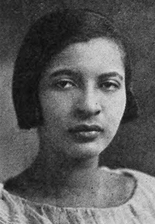
Theodora Velma Fonteneau Rutherford was an African-American accountant, clubwoman, and college instructor. In 1960 she became the first black CPA qualified in West Virginia.
